Hear Our Voices from the Hilltop: Shma Koleinu Members Reflect on the NAEYC Public Policy Forum3/23/2023
On February 28, 2023, early childhood leaders from across the country collaborated to urge lawmakers to invest in substantial and sustainable federal child care funding. For two days leading up to the visit to the Hill, the National Association for the Education of Young Children (NAEYC) organized an informative and thought-provoking conference, which provided state teams with key tools and resources for effective meetings with their representatives. 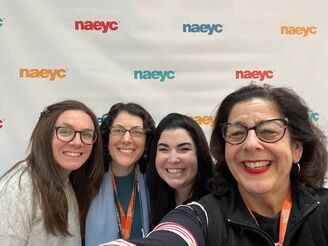 Shma Koleinu Members (from left to right), Emily Hausman, Lisa Plotkin, Ilana Dvorin Friedman, and Kathy Pomer, pose in front of the NAEYC backdrop. Shma Koleinu Members (from left to right), Emily Hausman, Lisa Plotkin, Ilana Dvorin Friedman, and Kathy Pomer, pose in front of the NAEYC backdrop. Five of us from Shma Koleinu attended the NAEYC Public Policy Forum and gained tremendous knowledge and strategies for optimizing advocacy opportunities. Empowered by our congressional visits on the Hill, we continue to shout our collective call to action from the hilltops: Tell Congress that affordable, high-quality child care is essential and requires ongoing federal investments. "Enough chatter," Lisa Plotkin, active Shma Koleinu member keenly asserts, "we need action, for our educators, our families, and our children." We hope these reflections and pictures from our meaningful experience on the Hill empower those reading to take action with us! Our lived experience is expertise! We have to stop thinking that we need certain training or classes or degrees in order to speak to power. We have to lead with our lived experience, and there’s no one that can refute it. The people on the Hill need it, and we are doing a disservice when we don’t share. This is the Pirkei Avot text in action! We don’t need to complete the task but we must not withdraw from it (Kathy Pomer, Maryland).
Meeting with Representative Kean, Jr. was an especially meaningful experience because lives near our Temple (Jill Cimafonte, New Jersey). Our Collective Call to Action 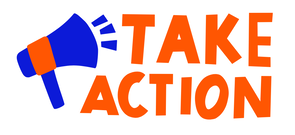 You may feel inspired to attend next years' NAEYC Public Policy Forum with us- and we look forward to advocating with you! BUT you do not have to wait a whole year to use your voice. Contact your elected officials today:
“Let’s get this message out,” championed Congressman Brad Schneider (IL-10) during a recent visit at the Bernard Weinger JCC Early Childhood program, coordinated by JUF’s Jewish Early Childhood and Government Affairs teams. The message: early childhood care and education requires robust, long-term federal funding.
After a heartwarming morning with young students and talented educators, Congressman Schneider asserted that “education is necessary for the future” and solving the child care crisis is a “priority.” Our visit with Congressman Schneider reaffirmed that early childhood advocacy is successful when families join to share their experiences and challenges. During the visit, a long-time JCC parent and active leader in the Family Involvement Group (FIG) shared her family’s experience and why consistent, reliable, high-quality care is critical for young children and their families. Her captivating words underscored how the expertise of educators, partnerships with social services, and relationships with other families creates a safe and enriching community for her family. The stories about the central role of the JCC early childhood program in her life inspired deep conversations about the need for greater federal investments in child care. In conversations with policymakers, family stories achieve 3 things: The 3 E's.
1. Enliven data Data is powerful for identifying specific challenges facing the child care industry. Prominent early education and child care organizations have put forth compelling reports about the progress toward fixing this broken system. But, numbers are not enough; compelling narrative data that captures personal, human experience, as these reports include, is critical for affecting change. As advocates, we must appeal not only to the mind but to the heart. Personal accounts about the impact of the pandemic on families’ employment, child care options, mental health, and children’s development give life to numbers and allow for decision-makers to be more emotionally invested in the issue. 2. Expand the scope Stories not only illuminate an individual’s lived experiences but can provide broader, community level insights about how child care is a needed infrastructure. As the JCC parent told stories about her own child’s experience, she seamlessly integrated various perspectives from other families, educators, and community members. In doing so, she reminded the Congressman that consistent, high-quality early childhood education is not just something “nice” or “helpful” in her family’s life, but a societal and economic necessity. 3. Encourage action The true power of stories is their potential to inspire action. We cannot just equip our elected officials with qualitative and quantitative data without articulating what do with it! Our stories provide reflections on what works and what doesn’t work, what has happened and what can be. Through our stories we can urge policymakers to support specific actions and consider us their partners on the path toward change. 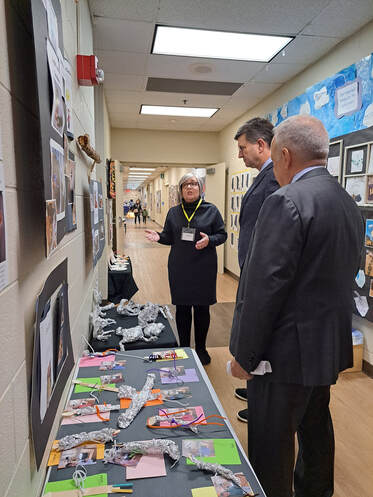
A few days after our visit, Congress passed the much-anticipated year-end spending bill with a $2.8 billion increase for child care and early learning programs Notably, the bill included a 30% increase- over $8 billion dollars- for the Child Care and Development Block Grant, which helps working families secure much needed child care for their young children. But more ongoing federal and (state level) investments are needed to support this crucial infrastructure. As the 118th Congress convenes, now is the ideal time to strengthen our relationships with elected officials and maximize the current bipartisan support for early childhood care and education. Now is the time to center family voice and tell our stories.
Ilana Dvorin Friedman
Early Childhood Policy Analyst, JUF Chicago The lack of pay parity for skilled and talented educators, the unaffordable price tag on quality early childhood education, and the absence of robust federal and state level investments are key issues that fueled the formation of our Shma Koleinu: Hear Our Voices Coalition. Jewish values anchor our commitment to uplift our diverse early childhood communities and engage with stakeholders to champion crucial child care policies. As members of Shma Koleinu, we bring these messages with us wherever we go, in our various roles, experiences, and collaborations. We welcome new partners on our ongoing mission of listening to and advocating for children, families, and early childhood education. The following is an excerpt from reflections* shared by two valued Shma Koleinu members, Shellie Dickstein and Ellen Greene. Our History, Our Goals, Our JourneyAlong with other colleagues working in Jewish nonprofit sector, we were feeling frustrated that we could not do advocacy work for the field as part of our educational portfolios because it was viewed as “political.” So, we reached out to Jewish early childhood directors and leaders to organize and create a volunteer consortium, outside of our formal work positions, to lend our Jewish voices (hence the name Shma Koleinu) to advocate for Federal, State and local support for these issues. We began around the time of the 2020 elections building our own knowledge and trying to parse out the details about what proposals were being written on the Federal level. We connected with consultants to understand the political landscape and to train in how to speak to representatives and tell our stories, and then make calls to our representatives to support the family and early childhood proposals of the Build Back Better Bill. We learned that personalized stories and those of individual teachers and parents struggling were best. At the same time, we continued to get the word out and build our coalition of volunteers. Leading up to the 2020 election, we also gathered resources about introducing young children to concepts of democracy and citizenship and made them available to educators on our website. We each also had to learn about the local support mechanisms in each of our communities and report back at meetings so we could put together a picture of similarities and differences in localities. And many of us became involved with local efforts to get legislators to increase their budgets in support of early childhood and families. We also started educating ourselves around issues of inclusivity and connecting to the broader early childhood movements to understand the experiences in minoritized communities. When Build Back Better became the Inflation Reduction Act, we spent time phone banking to Congress to support the portion for children and families and even though nationally we were very disappointed as each of these proposals shrank and left the issues of children and families out, we never gave up, and will not give up, adhering to the saying from Pirke Avot, “Lo alecha hamlacha ligmor, lo alecha ligmor,” "You are not required to finish the work, yet neither are you permitted to desist from it.” We know this is ongoing work, and just recently leading up to the midterm elections, many of us worked to get out the vote for candidates that support our agenda and mission. We are continuously advocating to elevate and personalize the field of early childhood education. Our members are like all of you, who have chosen our professional journey dedicated to young children and their families. They live all over the country and like you are leaders in our chosen field. The most remarkable part is that the focus of Shma Koleinu is ever changing with remarkable achievements so far in our ongoing journey. *From AJU'S Early Childhood Education Mentors Meeting
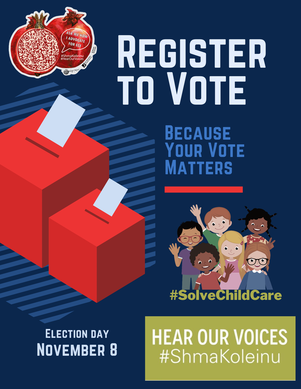 This week, in Parshat Bereishit, we read that God created the world with space for people to play an active role in its ongoing creation. One way we enact B’tzelem Elokim, being made in God’s image, is through an intentional engagement in the creation of a more perfect and just world. The work is vast, but, “it is not your duty to finish the work, but neither are you at liberty to neglect it.” (Pirkei Avot 2:16). Our tradition teaches us that this duty extends to the participation and betterment of the communities in which we live. As individuals, we can do this by voting for our elected officials and motivating others to vote. Monday, November 8 is election day- use your voice and right to vote in order to make the world a better place for its youngest inhabitants. Our country needs an early learning system that can meet the needs of working families- and the early educators they rely on. Set our children up for success. Vote! Share this flyer with your educators and families with a QR code to register to vote!
Read these articles about voting and young children:
On Wednesday, September 7, Congresswoman Jan Schakowsky (IL-09) experienced the beauty of early childhood Jewish education as she engaged with, and even danced with, her youngest constituents, students at JCC Chicago Beth Emet in Evanston. Congresswoman Schakowsky’s visit is an example of an important advocacy approach: inviting legislators as partners into our programs. During her time at Beth Emet, we thanked her for her ongoing support, shared about the Jewish Early Childhood Collaborative, JUF Chicago, and JCC Chicago, and discussed the current child care landscape. We laughed, and we cried. The successful visit ended with pictures, hugs, and a shared understanding that the child care system requires long-term, federal funding.
After her visit, Congresswoman Schakowsky amplified the main child care issues from our conversations on her Twitter, Facebook, and Instagram pages: "Child care costs are up, while teacher pay remains low. All families deserve access to affordable early childhood education and teachers deserve higher wages. Let’s do it.” In the beginning of her post, she expressed the joy from her visit: “No better way to start the day.” And those of us in her presence could not agree more. Congresswoman Schakowsky’s visit, besides being enjoyable, left us feeling optimistic and energized: optimistic that our legislators represent the interests and needs of families with young children and energized to continue engaging in the advocacy work necessary to advance robust child care investments.
Advocacy is an ongoing endeavor within many levels of influence from our daily interactions with children and families to our partnerships with elected officials. The journey is challenging; disappointment and frustration often ensue. But it is meaningful opportunities like this one with Congresswoman Schakowsky that leave a strong impression and provide lessons to continue along the advocacy path:
When greeting Congresswoman Schakowsky at the start of the visit, she looked me straight in my eyes with an intensity I had never previously experienced. It was an affirming feeling. I knew her commitment to showing up that day was not just something to check off a list; she was there for a purpose--to partner with us in efforts to affect change. And, yes, there was “no better way to start the day” than engaging in advocacy for child care and early learning!
Ilana Dvorin FriedmanEarly Childhood Policy Analyst, JUF Chicago
#SolveChildCare
#ShmaKoleinu #HearOurVoices The Paradigm Project Pop-Up |
Categories
All
Archives
March 2023
|

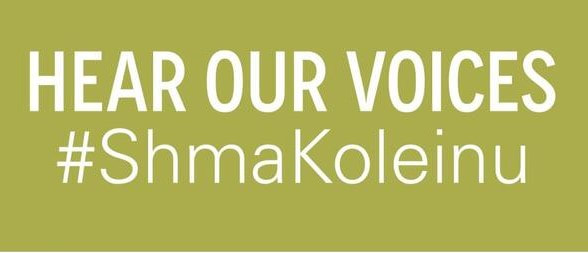
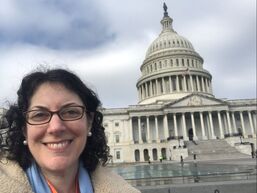
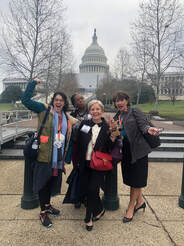
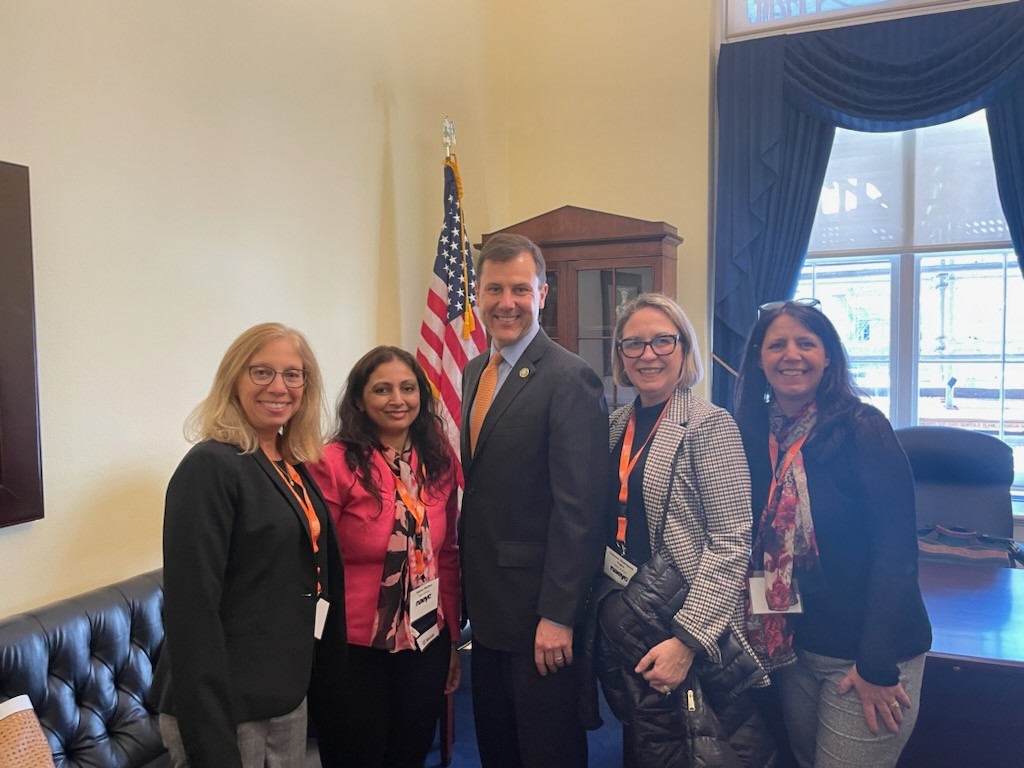
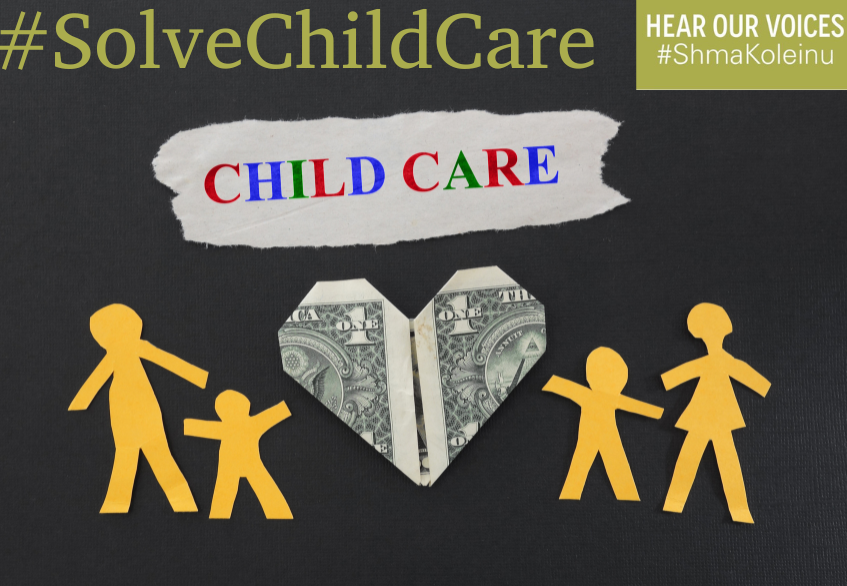

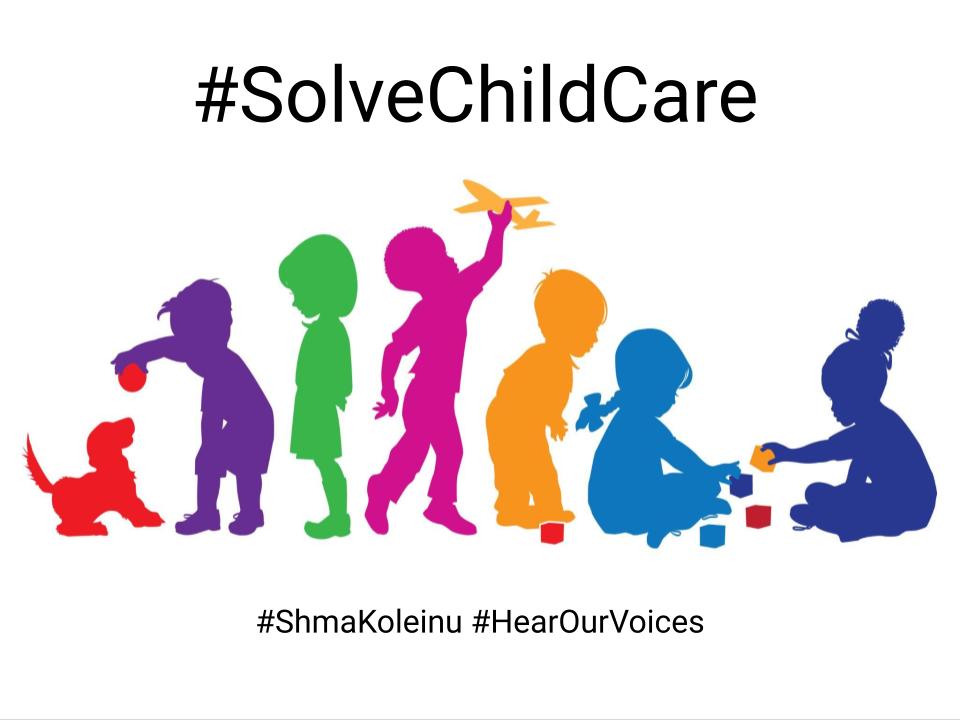
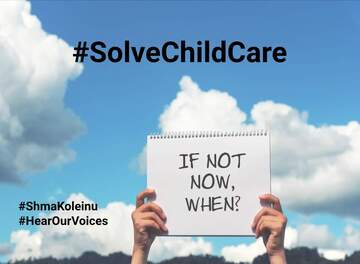
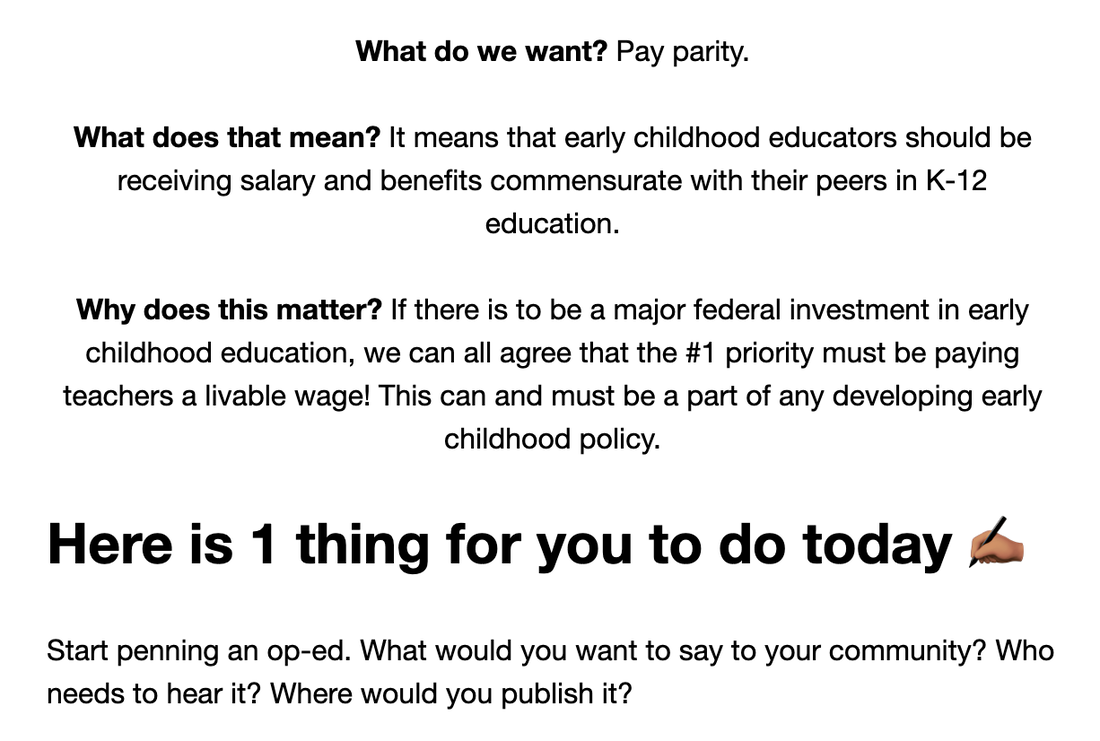
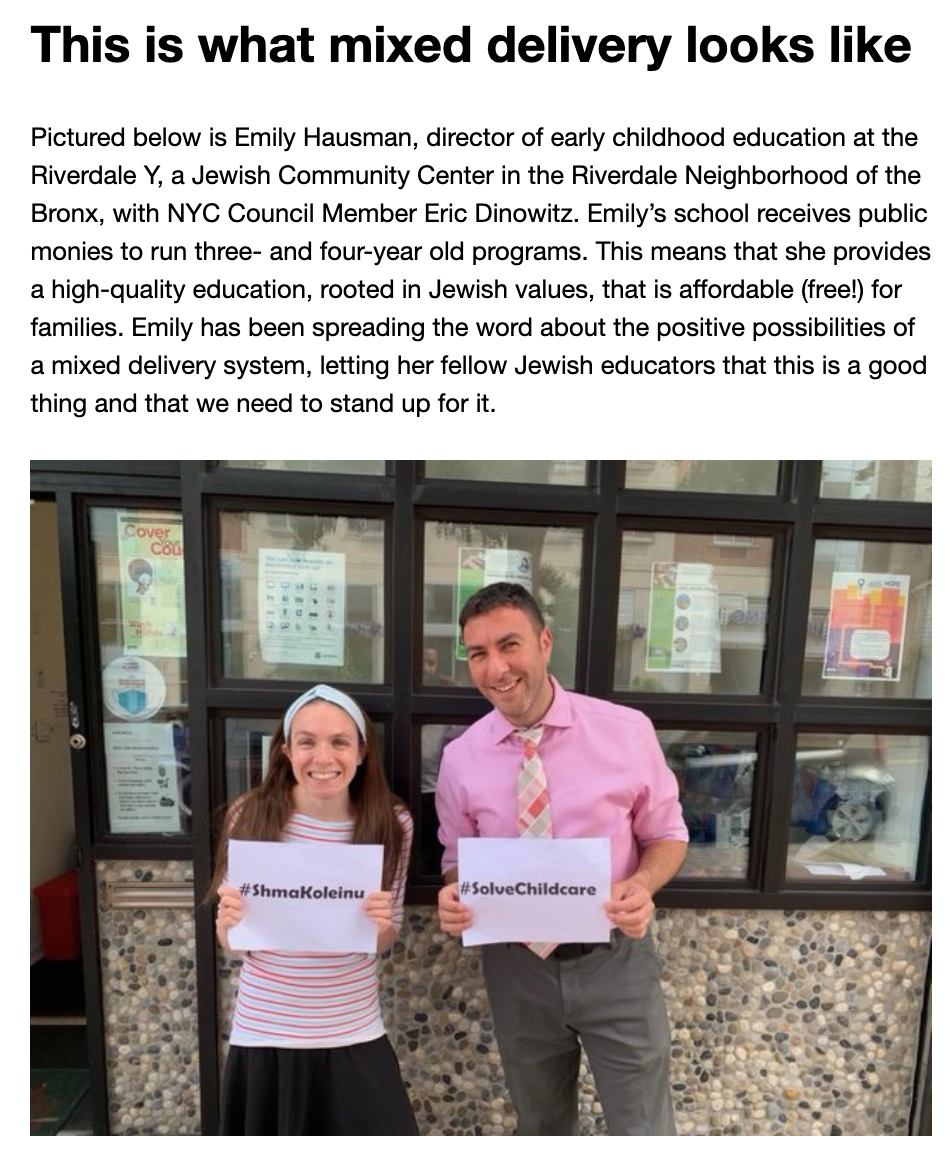
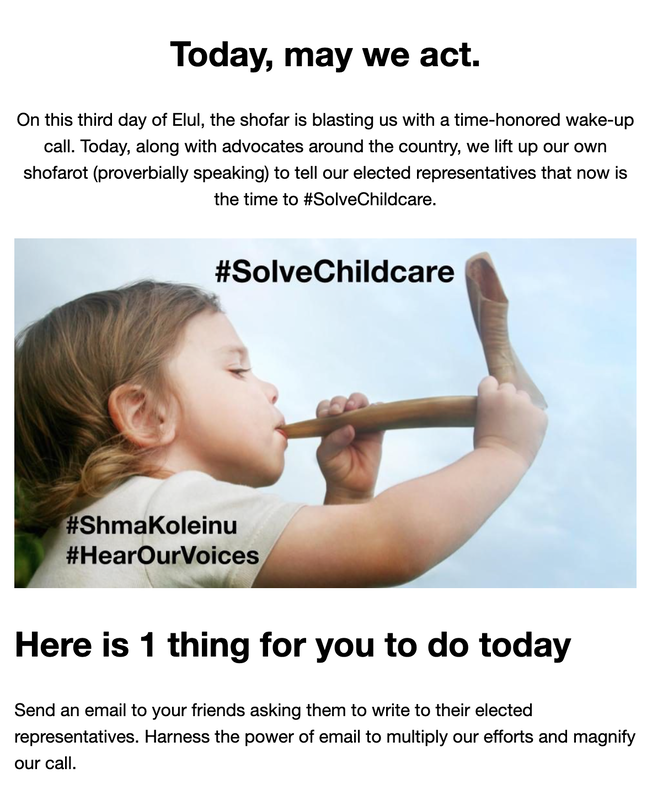
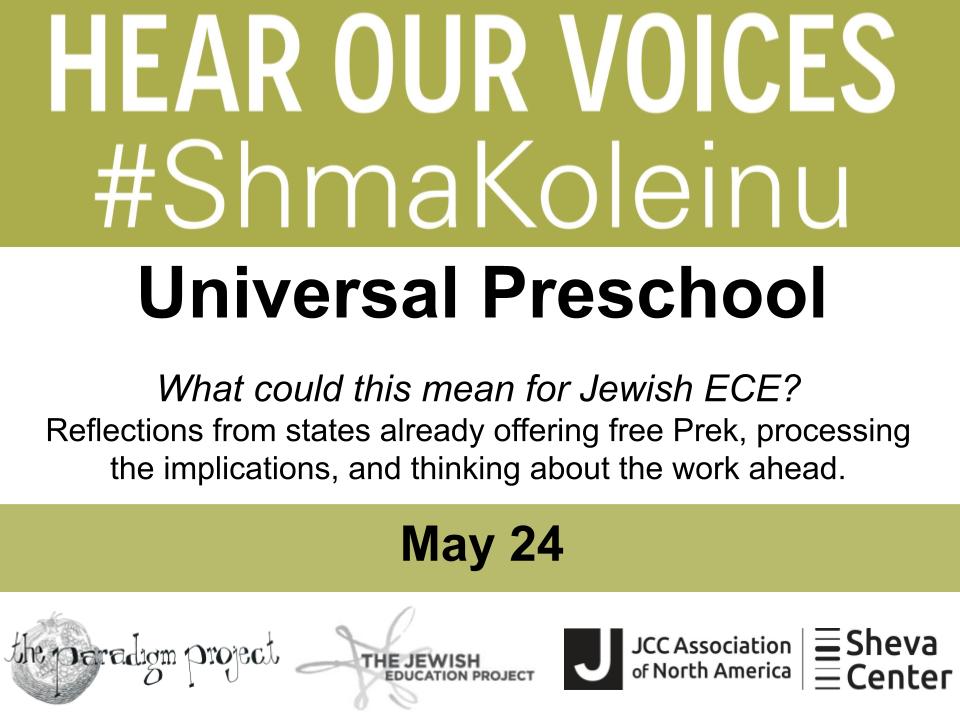
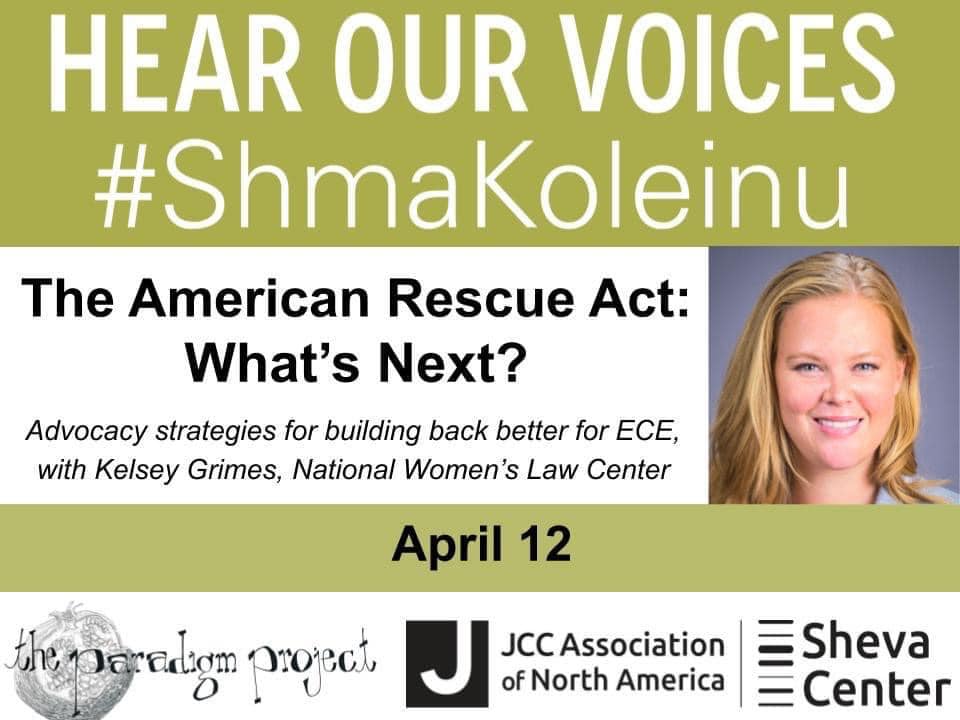
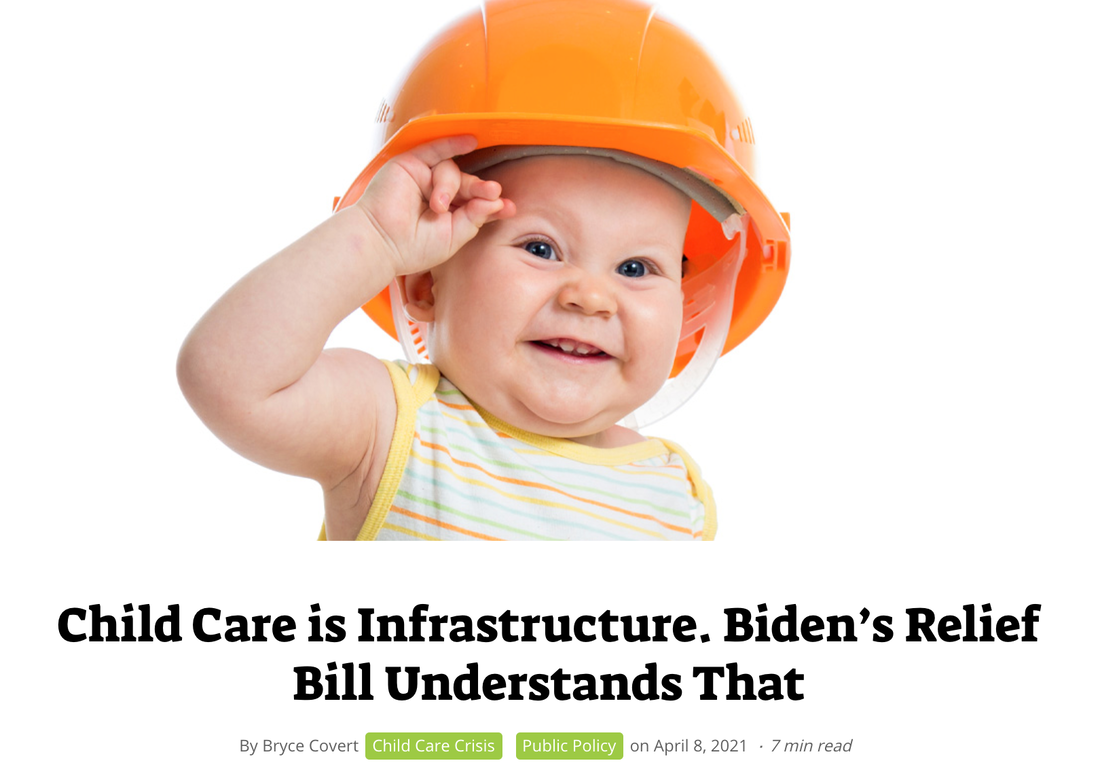

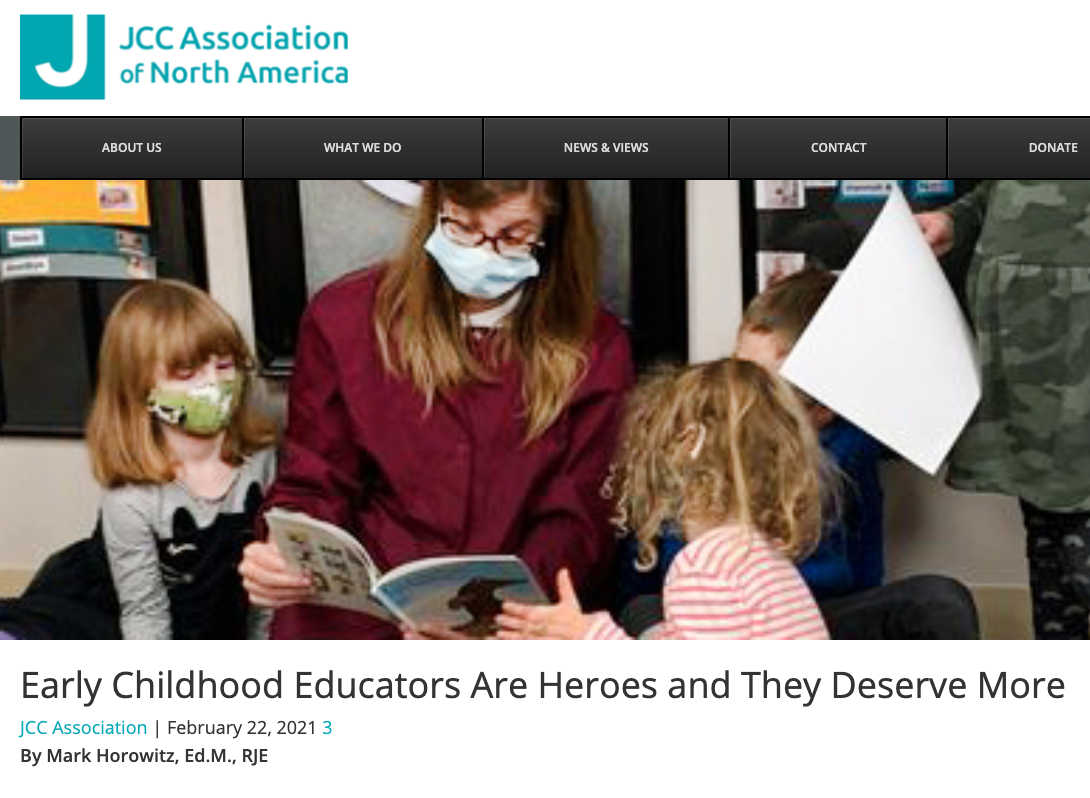
 RSS Feed
RSS Feed